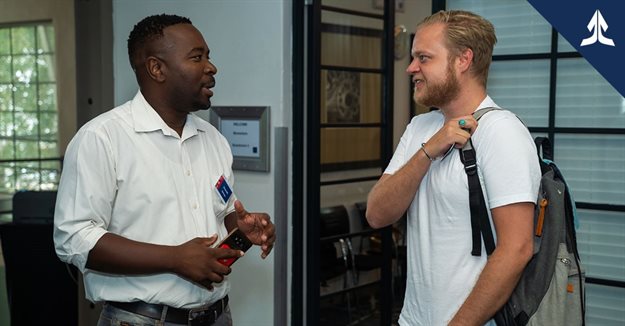The Momentum Metropolitan Foundation (MMF) recently facilitated a council session with its not-for-profit partners to spark critical conversations, create much-needed synergy and forge possible new partnerships in an effort to combat South Africa's rising youth unemployment.
Regarding the forum, Nkosinathi Mahlangu, Youth Employment Portfolio head at Momentum Metropolitan said, “This session gave our six partners in the youth development and employment space a forum to learn, share ideas and strategies. It also became a safe space to share best practices and understand how each of us play our part in creating sustainable jobs for our country’s youth.”
One of MMF’s partners from Quadpara Association of South Africa (QASA) spoke about challenges that restricted them from being able to provide services effectively. QASA’s candidates are wheelchair bound and have found that most of them drop out of school due to issues ranging from disability unfriendly facilities and financial challenges. QASA has found this challenging because most of its programmes require a matric certificate, leaving many disabled youth unable to find a path to financial success.
Accessing 4IR opportunities
Beyond matric certificates, NPOs on the day highlighted that many candidates are nowhere ready to access the opportunities and ride the challenges inherent to the fourth industrial revolution. They maintained that digital skills should have been enforced at a foundational school level. At least then, when candidates arrive at upskilling facilities, they are on a basic level of understanding. Right now, too many candidates enter the programmes with zero understanding of the digital world. Many are even afraid to switch on a computer.
NPOs in the room called for mentors to play a part in equipping youth with the right mindset to play a positive role in the economy. Schools were also urged to introduce vocational skills training to empower drop-outs to manage and cope when attending NPO skills development programmes.
Rashuping Morake from Rhiza Babuyile said that NPOs don’t talk about the fact that they are each other’s competitors for funding. That is why it is significant that Momentum has made the effort to bring everyone together as partners, not competitors.
“We have a common goal through these partnerships,” says Mahlangu. “It is imperative that we start working closer together as a collective so we can fast-track economic upliftment among our youth. Our collaborative approach and our partner’s efforts will be the catalyst for our country’s journey to success,” concludes Mahlangu.







































